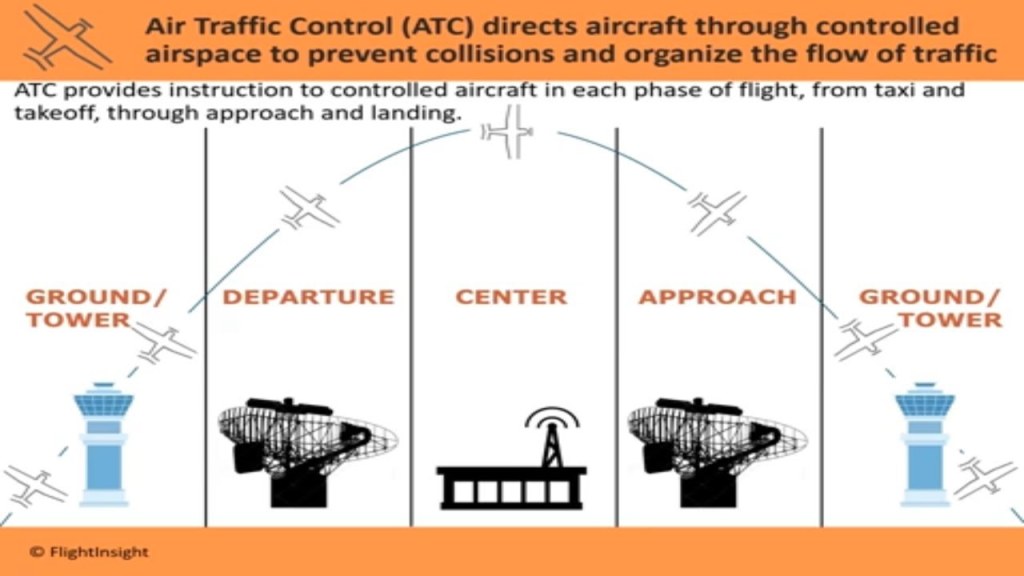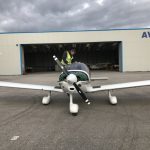Mastering Air Traffic Control: Essential Tips For Success
Air Traffic Control Tips: Ensuring Safe and Efficient Air Travel
Introduction
Dear Readers,
Welcome to our article on air traffic control tips! As air travel continues to grow, it is crucial to maintain a safe and efficient system to handle the increasing number of flights. In this article, we will provide you with valuable insights and tips on air traffic control, helping you understand the importance of this profession and the measures taken to ensure smooth operations in the skies.
2 Picture Gallery: Mastering Air Traffic Control: Essential Tips For Success


So, let’s dive in and explore the world of air traffic control!
What is Air Traffic Control?
🚀 Air traffic control (ATC) is a vital component of the aviation industry, responsible for managing the flow of air traffic to ensure safety and efficiency. At its core, ATC involves monitoring and guiding aircraft through controlled airspace, coordinating takeoffs, landings, and the movement of aircraft on the ground. It is like orchestrating a symphony in the sky!
🚀 To perform their duties effectively, air traffic controllers rely on various tools and systems, including radar, radio communication, and advanced computer systems. Their primary goal is to maintain a safe distance between aircraft, prevent collisions, and ensure efficient operations at airports and in the airspace.
Who are Air Traffic Controllers?

Image Source: aopa.org
🚀 Air traffic controllers are highly trained professionals who work in control towers or en-route centers. They undergo rigorous training programs to develop the necessary skills and knowledge to manage the complexities of air traffic control.
🚀 These individuals possess excellent situational awareness, quick decision-making abilities, and exceptional communication skills. They must remain calm under pressure and effectively handle stressful situations to ensure the safety of passengers and crew.
When and Where is Air Traffic Control Needed?
🚀 Air traffic control is required whenever aircraft are operating in controlled airspace, such as near airports or in high-traffic areas. It is a crucial element of aviation safety, ensuring that aircraft maintain safe distances from one another to prevent collisions.
🚀 Air traffic control is needed at airports of all sizes, from small regional airports to major international hubs. Additionally, it plays a critical role in guiding aircraft during takeoff and landing, managing ground movements, and coordinating flights in and out of busy airspace.
Why is Air Traffic Control Important?
🚀 Air traffic control is essential to ensure the safety and efficiency of air travel. Without effective ATC, the risk of mid-air collisions, runway incursions, and other incidents would significantly increase. By maintaining a well-structured system, air traffic controllers minimize the potential for accidents, making air travel one of the safest modes of transportation.

Image Source: ytimg.com
🚀 Moreover, efficient air traffic control helps optimize airspace utilization, reducing delays and congestion. By carefully managing aircraft movements, ATC ensures that flights are operated as smoothly as possible, maximizing capacity and minimizing the environmental impact of air travel.
How Does Air Traffic Control Work?
🚀 Air traffic control operates on a hierarchical system, with different control centers responsible for specific regions. Controllers communicate with pilots through radio frequencies, providing instructions, guidance, and necessary information to ensure the safe and efficient flow of air traffic.
🚀 The process begins with departure clearance, where controllers outline the route, altitude, and other relevant details for the flight. During the journey, controllers continuously monitor the aircraft’s progress, adjusting the instructions as needed to maintain separation from other aircraft. Finally, controllers guide the aircraft during approach and landing, ensuring a safe and smooth arrival at the destination airport.
Advantages and Disadvantages of Air Traffic Control
🚀 Advantages:
1️⃣ Improved Safety: Air traffic control helps prevent collisions and ensures the safe movement of aircraft, reducing the risk of accidents.
2️⃣ Efficient Airspace Utilization: By managing the flow of air traffic, ATC helps optimize airspace capacity, minimizing delays and congestion.
3️⃣ Enhanced Communication: Controllers act as a vital link between pilots, providing them with crucial information and instructions for a safe flight.
🚀 Disadvantages:
1️⃣ Human Factors: Air traffic controllers are susceptible to human error, which can have serious consequences in this high-pressure environment. Continuous training and adherence to strict protocols help mitigate this risk.
2️⃣ Limited Capacity: Despite efforts to optimize airspace usage, air traffic control can still face limitations, especially during peak hours or in congested areas.
3️⃣ Cost and Infrastructure: Maintaining a robust air traffic control system requires significant investment in infrastructure, technology, and personnel.
Frequently Asked Questions (FAQs)
1. What qualifications are required to become an air traffic controller?
– Answer: To become an air traffic controller, individuals typically need to complete specialized training programs that include theoretical and practical components. Additionally, they need to meet specific medical and psychological requirements.
2. How do air traffic controllers handle emergencies?
– Answer: Air traffic controllers undergo extensive training to handle emergency situations. They follow established procedures, coordinate with relevant authorities, and provide pilots with appropriate instructions to ensure the safety of all involved.
3. Can air traffic control prevent all aviation accidents?
– Answer: While air traffic control plays a crucial role in preventing accidents, it is not a foolproof system. Pilots also have a significant responsibility to follow instructions and maintain situational awareness to avoid incidents.
4. How does air traffic control handle adverse weather conditions?
– Answer: During adverse weather conditions, such as heavy rain, fog, or strong winds, air traffic control may impose restrictions or reroute flights to ensure safety. Controllers work closely with meteorological services to monitor weather patterns and make informed decisions.
5. Is air traffic control the same worldwide?
– Answer: While air traffic control principles are similar worldwide, specific procedures and systems may vary between countries. Collaboration between air traffic control organizations globally ensures harmonization and safe operations.
Conclusion
🚀 In conclusion, air traffic control is a critical component of the aviation industry, ensuring the safety and efficiency of air travel. By managing the flow of air traffic, controllers play a vital role in preventing accidents and optimizing airspace utilization.
🚀 As passengers, it is essential to appreciate the dedication and expertise of air traffic controllers in ensuring our safe journey. Let us always be mindful of the intricate coordination and decision-making involved in every flight we take.
So, the next time you look up at the sky and see aircraft gracefully soaring through the clouds, remember the unsung heroes behind the scenes making it all possible—air traffic controllers.
Final Remarks
🚀 Air traffic control is a complex and challenging profession, demanding continuous training, attention to detail, and unwavering dedication. The information provided in this article only scratches the surface of this fascinating field.
🚀 If you are considering a career in air traffic control or simply curious about the intricacies of flight management, we encourage you to explore further and learn more about this vital profession. It truly is a world like no other!
This post topic: Air Travel Tips

